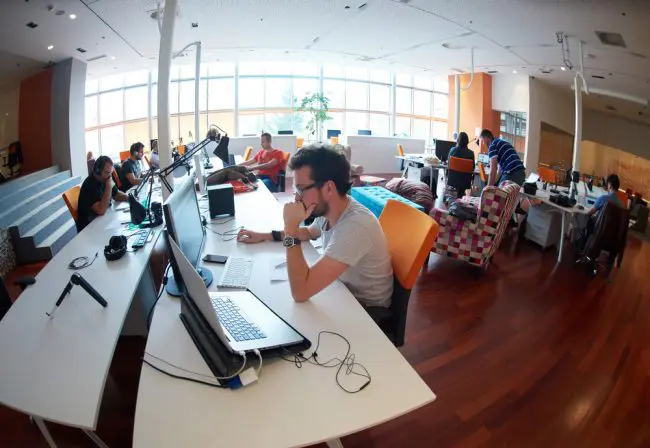Talking to The BBC he said small companies are not receiving the funding required to grow.
“We have been appallingly bad at giving those minnows the long-term capital they need,” said Mr Woodford.
On the BBC, Tech Talent coverage is asking whether the UK can compete in the global tech industry.
The UK is a magnet for entrepreneurs – around a third of them come from abroad.
But according to Mr Woodford and others, home-grown tech entrepreneurs are not turning promising starts into leading global companies.
On Monday, the BBC will look at the vibrant and growing UK tech scene and ask why it has failed to find a Google or Facebook.
A variety of reasons have been put forward, including a digital skills shortage, a lack of leadership experience and difficulties in raising finance.
Rohan Silva, a tech entrepreneur and former adviser to David Cameron when he was prime minister, says funding for start-ups has “long been seen as a big problem in the UK”.
“There’s two types of funding,” he told the BBC. “There’s the funding that comes from friends, family and fools: the start-up money – £50,000, £100,000 – to get going. There we’ve really made a big difference in the UK. We’ve created the world’s most generous tax breaks for that kind of investment.”
The second type is “scale-up cash” to help companies grow, which is still proving “a big challenge”.
“There is a big role for government in providing a bunch of that funding, particularly when it comes to research in the laboratory and helping that go to market,” he says.
Mr Woodford agrees that financing is a major constraint.
“We have four of the top 10 universities in the world, 29 of the top 200. We do science and research really, really well in the UK and we’re generating lots of little companies,” Mr Woodford said.


